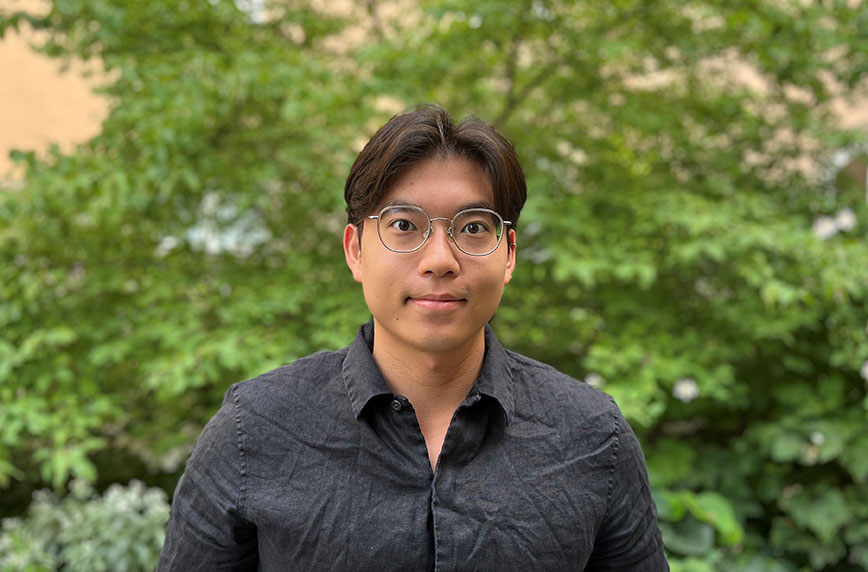Ta-Li
Ta-Li comes from Taiwan. Before coming to Sweden, he completed his bachelor studies in Materials Engineering at the National Taipei University of Technology. He likes movies, cooking, and working out. And also he has a podcast channel about his student life in Europe.

Why did you choose this master’s programme at KTH?
I'm passionate about semiconductors and materials, so I choose Nanotechnology. It's the perfect fit because it offers tracks in nanomaterials and nano-electronics, allowing me to explore both areas and take relevant courses freely. Nanotechnology allows working with materials at an atomic or molecular level, unlocking unique properties and potential advancements in electronics.
What are the best aspects of your programme?
The Nanotechnology programme students come from various backgrounds, including materials science, chemical engineering, physics, and electrical engineering. This creates a highly diverse learning environment, and it is truly amazing to be surrounded by these people, each bringing their unique perspectives and expertise to the table. Meanwhile, what truly captivates me about this programme is its freedom to choose courses between the nanomaterials and nano-electronics tracks. The best part? There are no prerequisites for these courses, meaning we have the incredible opportunity to explore and learn without any limitations holding us back.
What are some of your favourite courses so far?
I thoroughly enjoyed the Nanofabrication course during my first year. Our professor's infectious energy and passion made the learning experience truly engaging. We delved into the intricate process of working with silicon wafers, gaining a comprehensive understanding of their fabrication.
One of the highlights of the course was our visit to the clean room, where we witnessed first-hand how the technology is applied in real-life scenarios. These lab sessions provided a unique opportunity to see semiconductors processing in action, deepening my understanding of the subject matter. Observing and participating in the practical application of the concepts we learned in class added a new dimension to my learning journey. Overall, the Nanofabrication course equipped me with knowledge about working with silicon wafers and allowed me to appreciate nanotechnology's practical implications in the semiconductors field. The enthusiasm of the professor and the hands-on experiences in the lab sessions made this course a gratifying and memorable part of my nanotechnology education.
How do studies at KTH differ from your previous studies?
Compared to my previous studies, the pace in KTH is fast since it divides one semester into two periods, so we will have a fairly intense course to focus on and evaluate our understanding after studying. On the other hand, we don’t have too much pressure to prepare for the exams.
How is student life in Stockholm?
KTH has provided a perfect student life inside campus; the student organisation THS will hold different events at the beginning of the new semester so that you can make some friends. During the semester, you can hang out with your classmates in nature, the old town, the hipster area, etc. Also, THS will have events such as pub night, tentapub, and so many other occasions! You will not get bored if you are willing to go out.
How would you describe your time at KTH so far?
After a year in KTH, I believe it's not only just studying but also making connections. I am grateful to have met many people from different cultures and countries. Especially people in the Nanotechnology programme are super close; we hang out frequently after school. We went on a ski trip, did potlucks, and went to movies and pubs together. So yeah, I have had a perfect time in KTH so far!
What do you want to do after graduating?
I always wanted to stay in Europe after my master's degree; however, I discovered much more to explore throughout my study. So, I will consider doing an academic Ph.D. or industrial Ph.D. or going straight to the industry to gain practical experience, then consider whether I want to do more research on specific topics.
